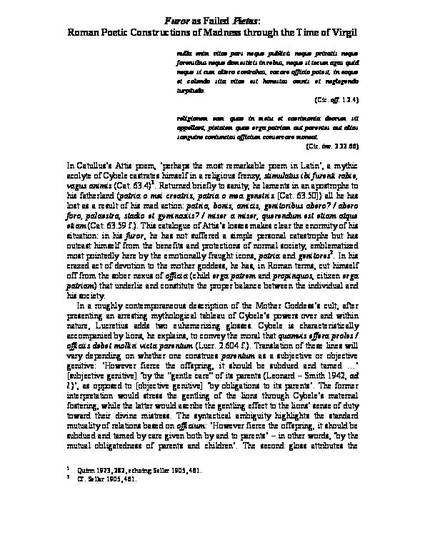
Roman poetic portrayals of mad characters through the time of Virgil construct a fundamental opposition between madness, an ipso facto self-absorbed or egoistic condition, and sanity, which duly fixes its gaze outside of itself, on parents, forebears, and the walls of state. The poets conceptualize furor less as what a modern sensibility would label insanity or mental illness than as a passion-fueled state antithetical to social order, able to be held in check only by rigorous adherence to the duty-oriented cultural code of pietas. In this moralized conception of madness, erotic furor is not a metaphorical by-path but a primary model for the hormonal and accordingly anti-rational forces that rob their victims of the outward focus demanded by the social compact.

Post-publication version:
McDermott, Emily A., "'Furor' as Failed 'Pietas': Roman Poetic Constructions of Madness through the Time of Virgil,' in Perdicoyanni-Paléologou, Hélène, ed., The Concept of Madness from Homer to Byzantium: Manifestations and Aspects of Mental Illness and Disorder, Hakkert Editore, Amsterdam, 2016, 191-244.